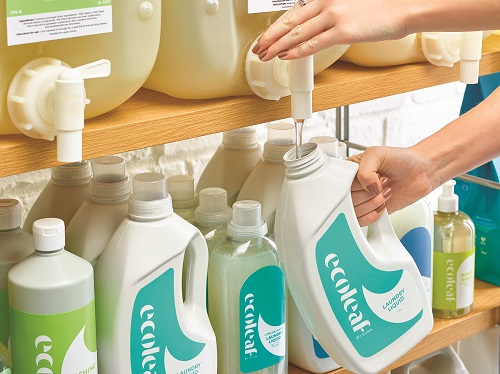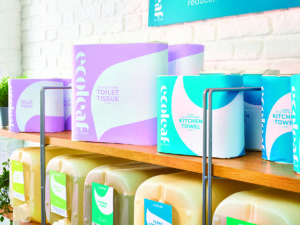
Friends of the Earth has described news that Sainsbury’s plans to become net zero by 2040 as encouraging.
The supermarket giant announced that its business and operations will become net zero in line with the goal to limit global warming to 1.5 degrees, the highest ambition of the Paris Agreement. It will focus on reducing carbon emissions, food waste, plastic packaging, water usage and increasing recycling, biodiversity and healthy and sustainable eating. In its statement, Sainsbury’s added that it will work collaboratively with suppliers and ask for their own carbon reduction commitments. It says it has committed to investing £1bn over 20 years towards becoming a net zero business across its own operations by 2040, aligned to the highest ambitions of the Paris Climate Change Agreement and a decade ahead of the UK Government’s own target. The retailer will work with the Carbon Trust to assess emissions and set science-based targets for reduction, publicly reporting on progress every six months.
Mike Coupe, CEO of Sainsbury’s, commented: “We have over 27m customers each week and almost 180,000 colleagues and we hope that we can collaborate across industries and sectors to help create momentum and drive meaningful change. Only when the trajectory for global warming slows to a maximum of 1.5 degrees will we all know that we can truly live well for less now and in the future.” Commenting on the news, Friends of the Earth’s Head of Policy, Mike Childs, commented: “It’s encouraging to see Sainsbury’s stepping up to the plate on the climate emergency – the rapid transition to a net zero economy is urgently required. Supermarkets have a huge influence on our personal carbon footprints, so the more they can do to embrace and encourage greener lifestyles, the better for us all. Encouraging and supporting the switch to a more plant-based diet is particularly important – eating less, but better quality, meat and dairy would be healthier for people and the planet.”
He continued: “The influence supermarket chains have over suppliers is also huge – they must use that to encourage better environmental standards while ensuring a fair deal for farmers.”

Ecoleaf by Suma has undergone a makeover to now boast a cleaner look and greener packaging.
The leading supplier of vegetarian and sustainable products has announced that the range’s bottles will now be made of post-consumer recycled packaging (PCR) – plastic that has previously been used in a product that is then reprocessed and remade into something new. Products made from post-consumer plastic close the loop, diverting plastic from landfill and allowing it to be recycled into something else.
Ecoleaf’s paper products will be wrapped in paper, which is 100 per cent recyclable, and offers an alternative to brands which wrap their toilet and kitchen rolls in plastic. The outer packaging will also be 100 per cent home copostable.
All Ecoleaf by Suma cleaning products are made in the UK, vegan and never tested on animals, plant-based, biodegradable and made using non-hazardous ingredients.

Mooncup has announced its reusable menstrual cup is being available free of charge to pupils of all state schools and colleges in England as part of a new Department for Education scheme.
The move marks the first time that environmentally-friendly and plastic free products are being offered as a free option in schools in England, alongside traditional disposable pads and tampons.
Kath Clements, Company Director of Mooncup, commented: “We are excited to be working with phs and the Department for Education to provide sustainable period products to young people across England. Based on our experience of working with the sexual health and wellbeing charity, Brook, we know that young people find the cost-effectiveness of menstrual cups particularly appealing, as well as their convenience and low environmental impact.
“Our goal from day one has been to make menstruation as positive an experience as it can possibly be. We hope that this initiative, and the conversation around it, will help in continuing to break the taboo around periods, as well as giving young people access to information about all their menstrual product options.”